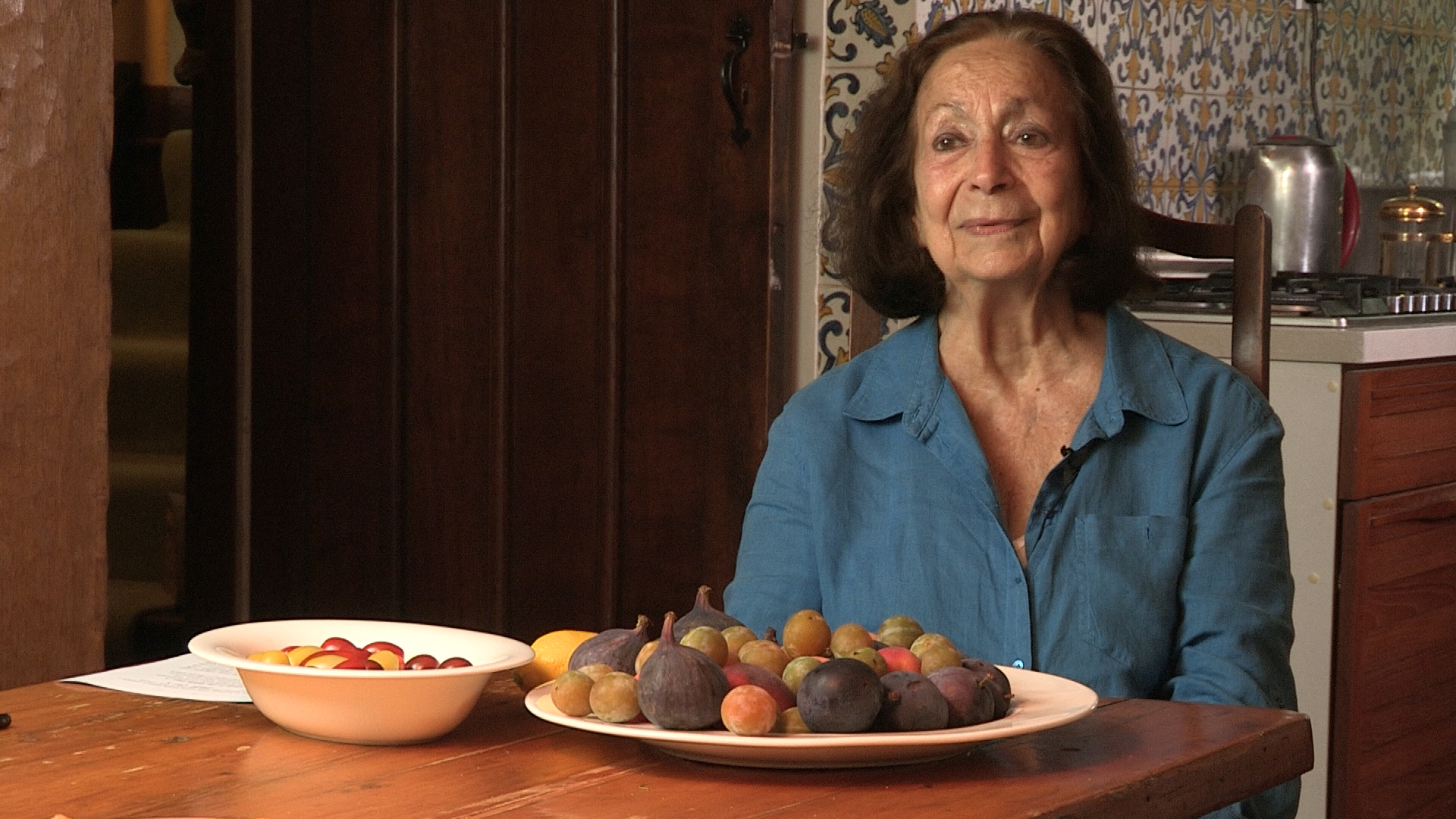NEXT STORY

Every dish has a meaning
RELATED STORIES

NEXT STORY

Every dish has a meaning
RELATED STORIES


|
Views | Duration | |
|---|---|---|---|
| 11. Cultural life in Paris | 3 | 03:30 | |
| 12. Student life in London | 3 | 02:49 | |
| 13. In search for ingredients | 2 | 02:00 | |
| 14. Youth culture I wanted to be part of | 2 | 02:31 | |
| 15. Being influenced by John Berger | 6 | 03:23 | |
| 16. The Suez crisis | 3 | 01:47 | |
| 17. Hospitality from strangers | 4 | 00:50 | |
| 18. My mother's passion for cooking | 3 | 03:33 | |
| 19. Our food is our identity | 4 | 02:27 | |
| 20. Cosmopolitan Egypt | 3 | 02:47 |


And when I was interviewing people, people would tell me about their lives. And I wrote it all down. I wrote about their lives, or where this dish came from. It was from a grandmother in Izmir, a grandmother in Salonica. Somebody from Livorno. Somebody from... because they were the Jews, Sephardic Jews from all over the Ottoman World. This is what our community was in Egypt. We weren't all Egyptian. There was an ancient Egyptian community that was there. That was there since before Islam. But in waves it was joined by others from different parts. From Yemen. There were people from Iraq and Iran. But mostly from the Ottoman World. And the Mediterranean.
And that's how I realised who we were. Because they were saying, 'This recipe is from Aleppo'. In our family it was Aleppo. Aleppo. But then I realised that it went even beyond Aleppo. Because some recipes in Aleppo were not Syrian recipes. Like the orange cake. My sister-in-law's grandmother had. And she was from Aleppo. And how could she have an orange cake, only her and her family.
And I realised they were... the Jews from Spain who, when banished from Spain, went to Portugal. Then came as Portuguese Christians to Livorno, in the 17th Century. When a whole lot of Marranos, coverts came to Livorno. And then came from there to Aleppo. And they kept the orange cake. They kept a whole lot of other things, like a dish we called calzones. Calzones was a kind of ravioli with cheese inside, which we ate on Thursdays. They weren't Syrian. So, for me I was learning about who we were. But also, a bit about geography, because of where some people say, 'This is Iranian'. So, I was trying to plot. Suddenly all these dishes that we weren't eating in my family, but others had.
Claudia Roden (b. 1936) is an Egyptian-born British cookbook writer and cultural anthropologist of Sephardi/Mizrahi descent. She is best known as the author of Middle Eastern cookbooks including A Book of Middle Eastern Food, The New Book of Middle Eastern Food and The Book of Jewish Food.
Title: Cosmopolitan Egypt
Listeners: Nelly Wolman
Claudia Roden talking to her granddaughter Nelly Wolman about her life in food.
Tags: Aleppo, Egypt
Duration: 2 minutes, 47 seconds
Date story recorded: September 2022
Date story went live: 04 December 2023